CityUHK-led sessions bring insightful ideas to the global stage for driving holistic sustainability
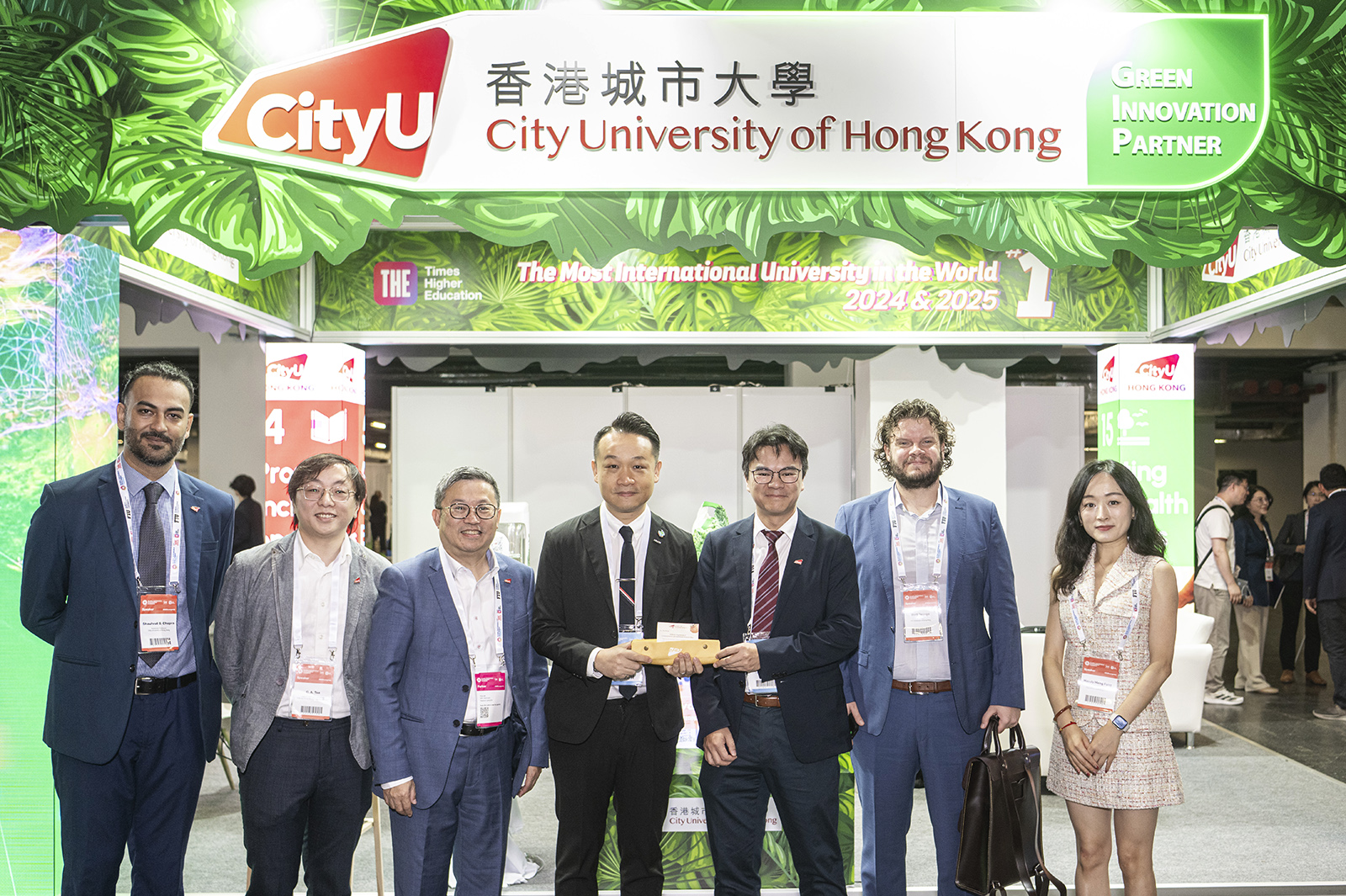
City University of Hong Kong (CityUHK) experts continued to share their insight and experience on their sustainability projects on Day 3 of the Global Sustainable Development Congress 2025, gathering environmental experts, scholars and institution representatives from around the world to exchange ideas.
“Regional insights into developing a green workforce”
Professor Anderson Shum Ho-cheung, Vice-President (Research) of CityUHK, joined the Green Skills Summit session to address the unique challenges and opportunities faced by different regions in cultivating green skills and creating inclusive, equitable green jobs.
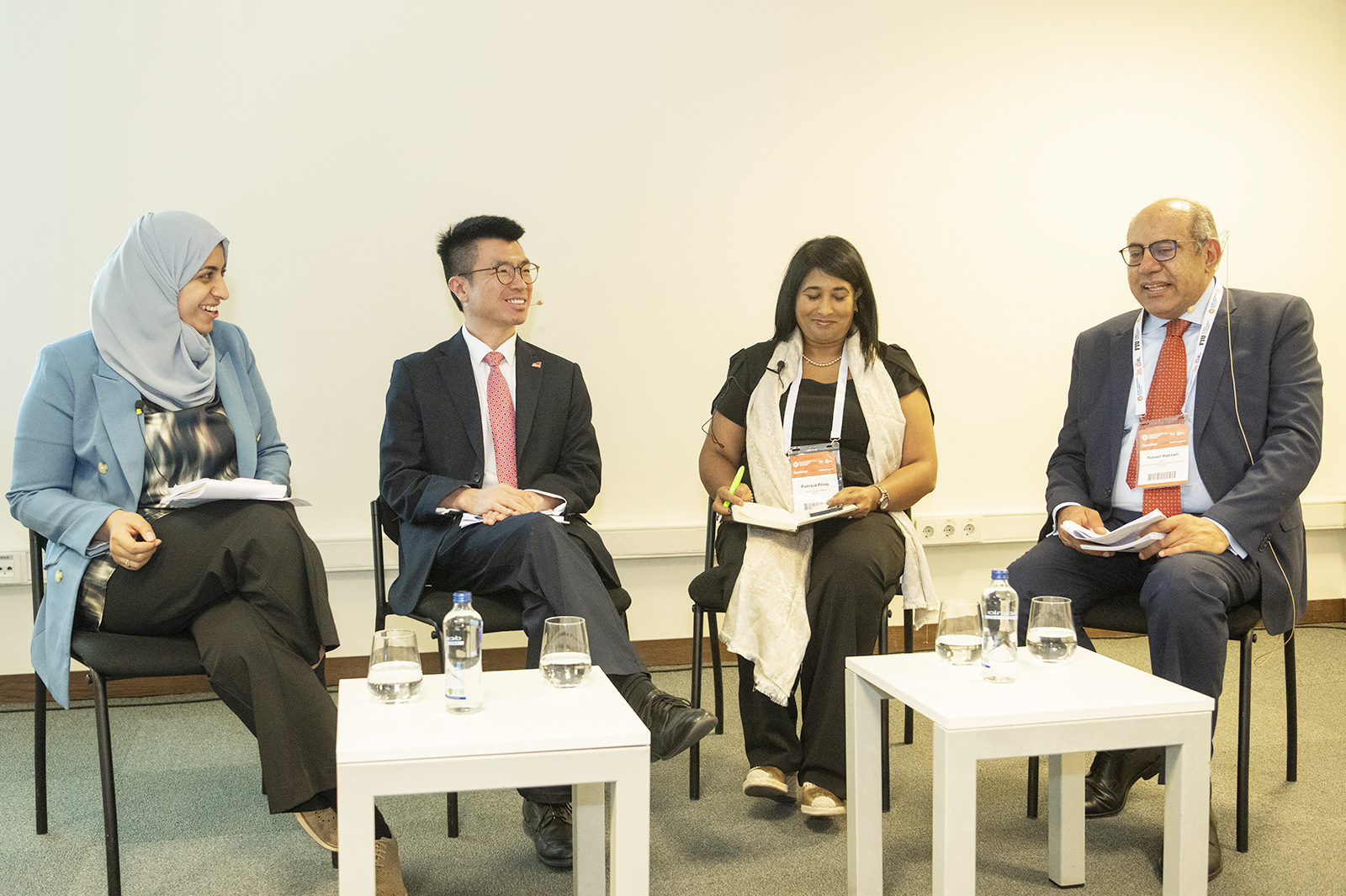
Professor Shum emphasised that green technology can effectively address environmental challenges while reducing costs to enhance affordability for broader community applications. He mentioned that CityUHK has launched a new programme, endorsed and supported by the United Nations (UN), to drive innovation in sustainability, advance measurable progress toward the UN’s Sustainable Development Goals, and foster inclusive global collaboration to tackle diverse environmental issues.
Professor Shum also highlighted the importance of translating research into real-world applications. He cited a successful project led by Professor Edwin Tso Chi-yan, Associate Dean (Internationalisation and Outreach) of the School of Energy and Environment at CityUHK that his cooling paint project exemplifies how impactful research can benefit local communities and economies while achieving global reach.
“Bridging the gap: Strengthening the triple helix of university-industry-government collaboration for energy sustainability”
CityUHK hosted another insightful panel discussion, exploring how these three sectors can collaborate to address energy sustainability challenges.
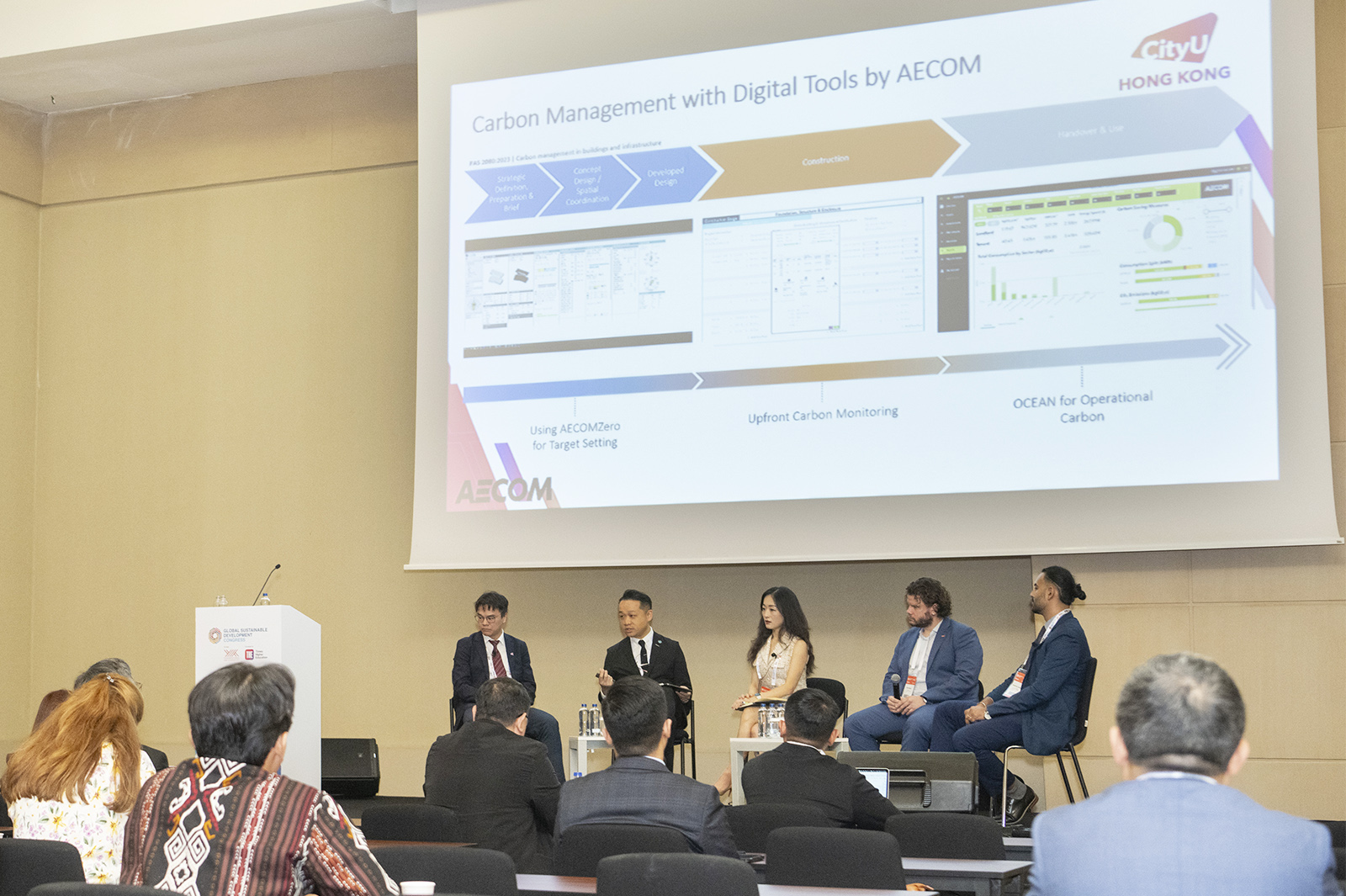
The session was moderated by Professor Angus Yip Hin-lap, Associate Director of the Hong Kong Institute for Clean Energy at CityUHK. Panelists included CityUHK professors, Professor Shauhrat Chopra of School of Energy and Environment; Professor Bert George of Department of Public and International Affairs; Professor Mandy Fang Meng of School of Law. They were joined by guest panelist Mr Tim Wong Ming-tai, Technical Director & ESG and Sustainability Hub Lead in Hong Kong at AECOM Asia.
The panellists discussed the role of policy and law in sustainable development, and how building and strengthening partnerships across academia, industry and government can accelerate progress towards the SDGs.
Professor George highlighted the importance of strategic foresight for governments in long-term planning, and stressed that it was crucial to bring together policymakers, government, and experts from academia and industry to ensure all sectors are represented in the conversation.
Mr Wong highlighted some successful cases of collaboration across the triple helix in Hong Kong, further emphasising that it was important to identify the core values in each organisation and make strategic partnerships to help achieve these values.
Professor Fang reinforced the importance of educating the next generation and mentioned that there is growing interest in the younger generation in environment protection as more students are taking courses on energy conservation law and international environmental law.
“Boosting urban renewable energy access through innovative photovoltaic technologies”
Professor Yip also gave a talk on the Impact Stage in the afternoon, exploring the role of advanced photovoltaic (PV) technologies in transforming urban landscapes and helping cities meet their carbon neutrality goals by 2050.
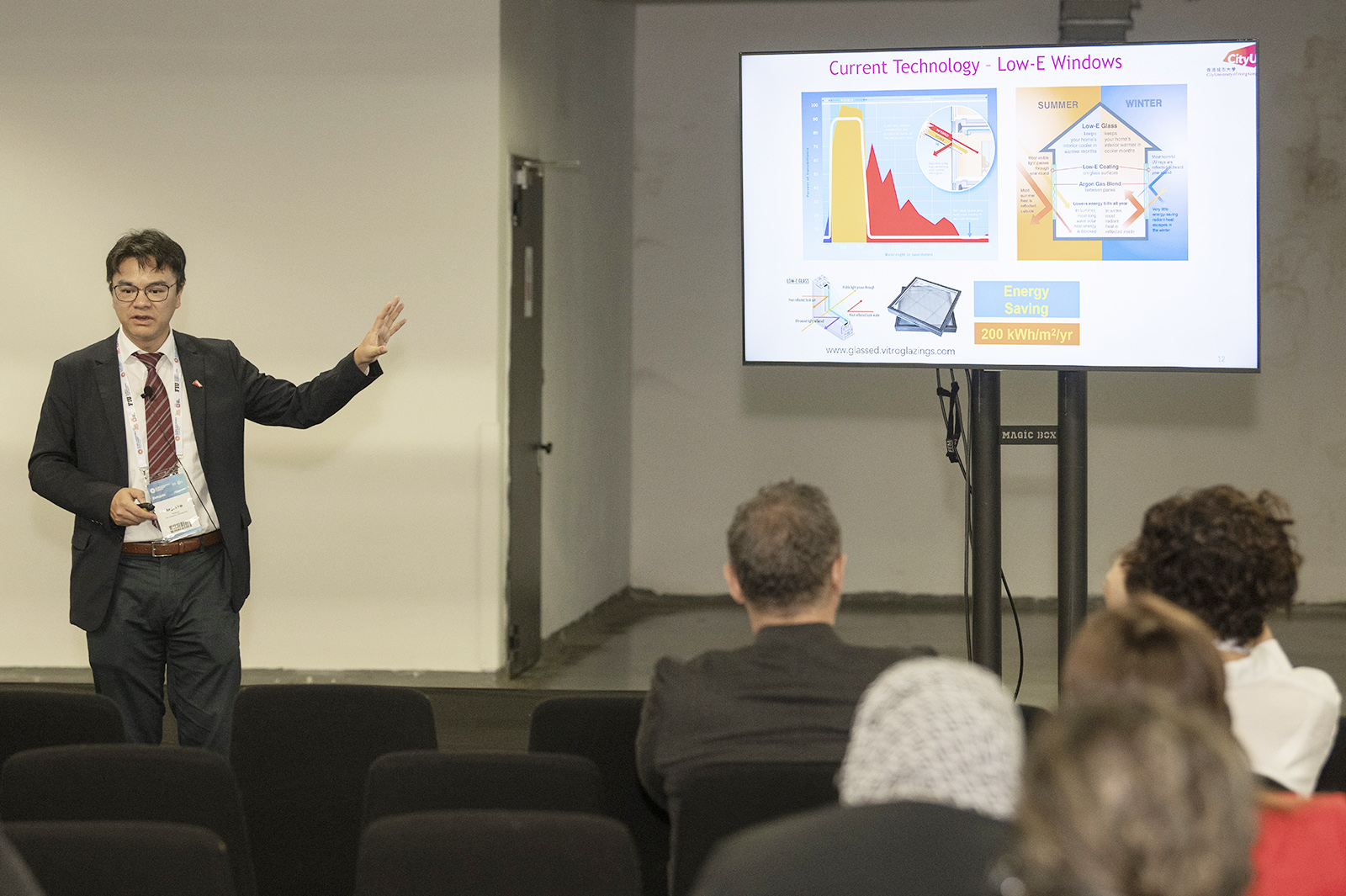
His talk demonstrated the versatility and potential of PV technology, such as its application in solar-powered clean energy systems, e.g., solar roads, agrivoltaics and floating PV systems. Professor Yip believes PV technologies can redefine urban energy strategies and improve city life since printing and producing them is becoming more cost-effective and accessible.
“Transformational leadership: Equipping the workforce to tackle global challenges”
The last CityUHK-led session of the day was delivered by Professor Ilex Lam Ka-keung of the Department of Social and Behavioural Sciences at CityUHK and Dr C.A. Tse of the Fullness Social Enterprises Society Ltd. The two presented the Transformational Leadership Programme (TLP), which offers a comprehensive educational framework focused on environmental preservation and skills for impactful community engagement.
The session showcased how TLP has successfully empowered future business leaders, educators, community leaders and NGOs to develop and share essential leadership skills for the workforce to address sustainability challenges.
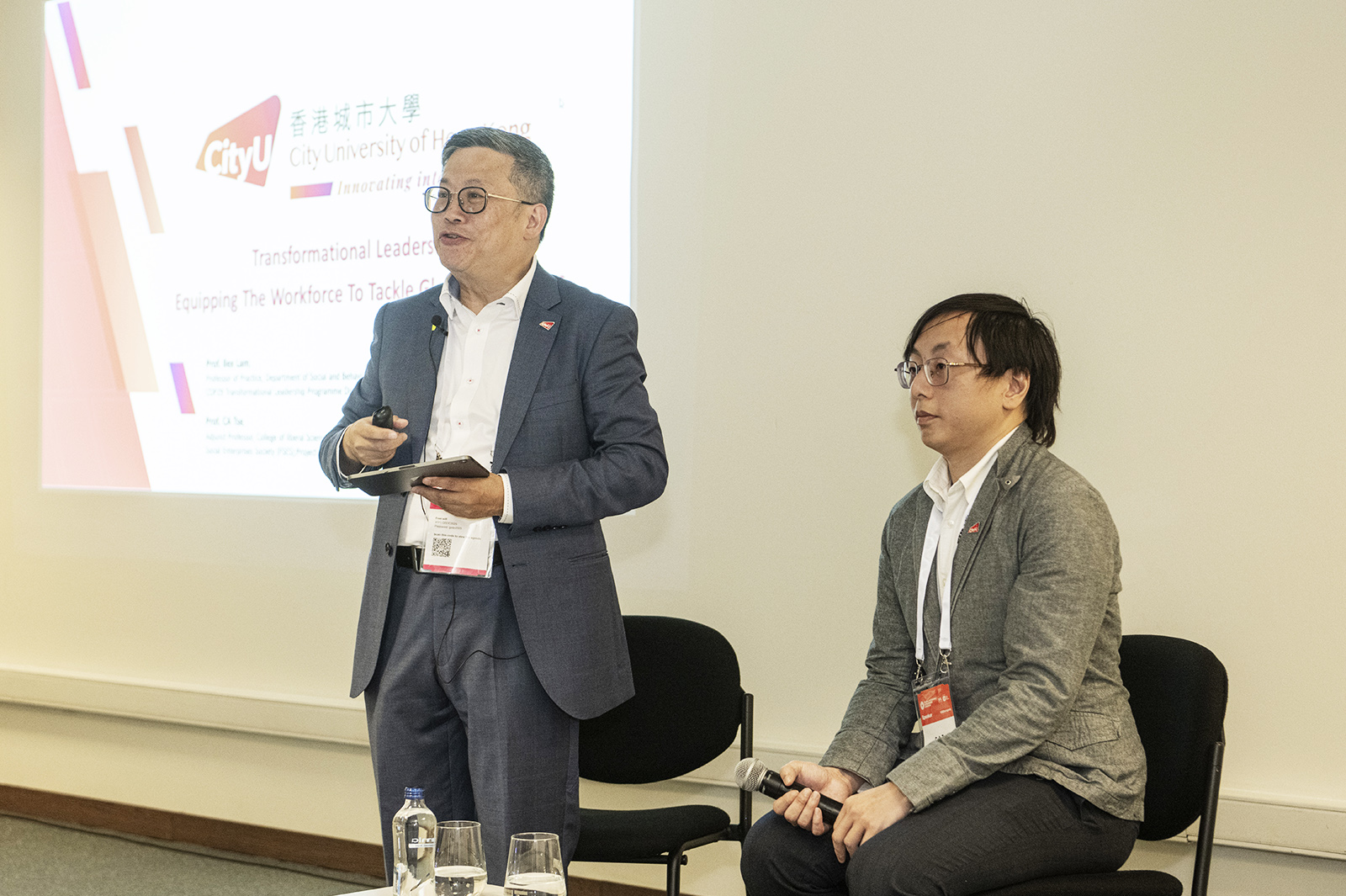
“The TLP helps institutions to look into developing strategic plans to train staff and nurture students to become future-thinking leaders. By providing an educational framework for institutions and giving students opportunities to experience hands-on learning, we can empower them with the right skills for tomorrow’s world,” said Professor Lam.
Dr Tse stressed the need to work with students and begin to teach them to think about sustainability from a young age as the young people may pass the message on to the next generations.
Through participation at the GSDC, CityUHK affirms its dedication and commitment to striving towards sustainable development. Participants from around the world engaged in fruitful conversation and thought-provoking discussion at CityUHK-led sessions, strengthening collaborative partnerships that will generate green solutions for the future.
Please visit the thematic website for more information about CityUHK sustainability experts sharing their insights at GSDC 2025.